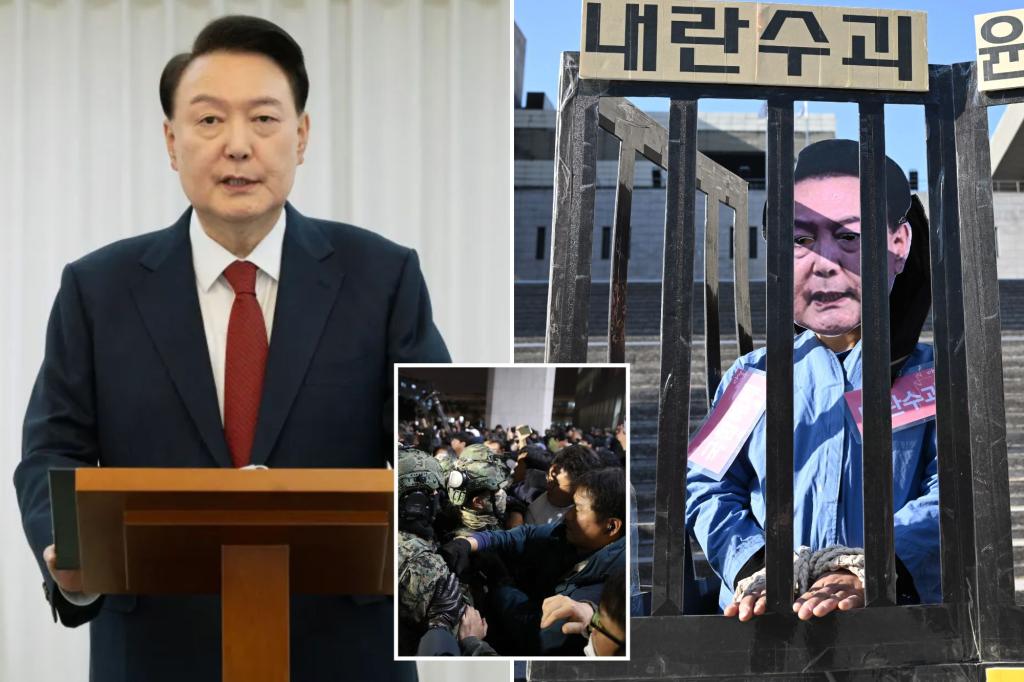South Korean investigators are seeking an arrest warrant for suspended President Yoon Suk Yeol over his short-lived imposition of martial law earlier this month. Yoon has failed to respond to police summons for questioning regarding whether his declaration of martial law amounted to insurrection. Despite attempts to raid the presidential office as part of the investigation, police have been unsuccessful. The decision on whether to issue an arrest warrant will be made by a Seoul court, as insurrection is one of the few charges for which a South Korean president does not have immunity.
Yoon’s lawyer, Yoon Kab-keun, has called the arrest request unfair and stated that the anti-corruption agency does not have the authority to make such a request. The lawyer argued that emergency martial law falls within the president’s authority. Yoon was suspended from his presidential powers after being impeached by parliament for his decision to impose martial law briefly. The incident involved masked martial law troops equipped with rifles, body armor, and night-vision equipment entering the parliament, causing shock and alarm both nationally and internationally.
The imposition of martial law by Yoon resulted in a brief moment where the parliament was faced with a potentially dangerous situation before voting down the decree and Yoon backing down. The move caused concern among allies like the United States and trading partners of South Korea, a country that has been a democracy since the 1980s and is Asia’s 4th largest economy. A Constitutional Court trial is ongoing to determine whether Yoon will be reinstated or permanently removed from office. The court has 180 days to reach a decision and held its first preparatory hearing, denying a request by Yoon’s lawyers for a postponement in the proceedings.
The court has indicated that it will move swiftly in the case, with the next hearing scheduled for January 3rd. Yoon’s lawyers are preparing to defend him against the charges related to the declaration of martial law and are working to ensure that he has a fair trial. The situation in South Korea has heightened political tensions and raised questions about the limits of presidential authority and immunity. Yoon’s case is unprecedented, as it marks the first time in South Korean history that an incumbent president has faced the possibility of arrest and prosecution for actions taken while in office.
The outcome of the trial will have significant implications for South Korea’s political landscape and may set a precedent for future presidential impeachments and investigations. The focus on the rule of law and accountability in government actions is crucial for maintaining stability and trust in the country’s democratic institutions. The people of South Korea are closely watching the proceedings and hoping for a resolution that upholds integrity, justice, and the principles of democracy. In the midst of uncertainty and tension, the judicial process will play a pivotal role in determining the future direction of the country and its leadership.


